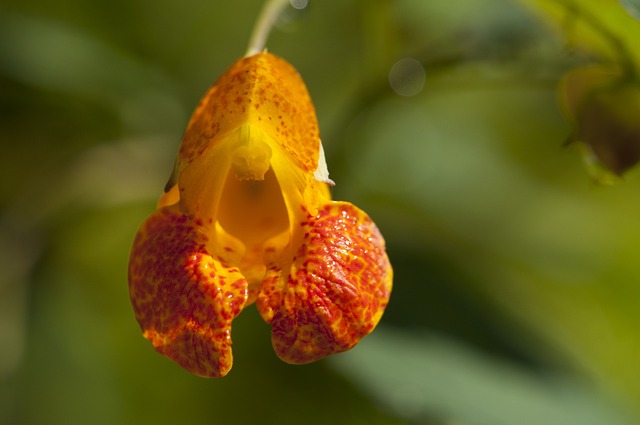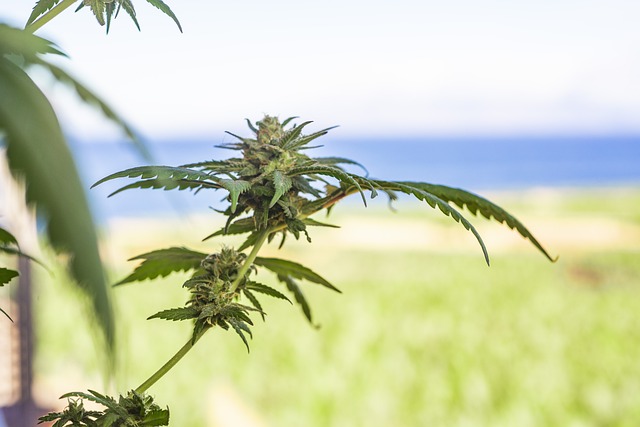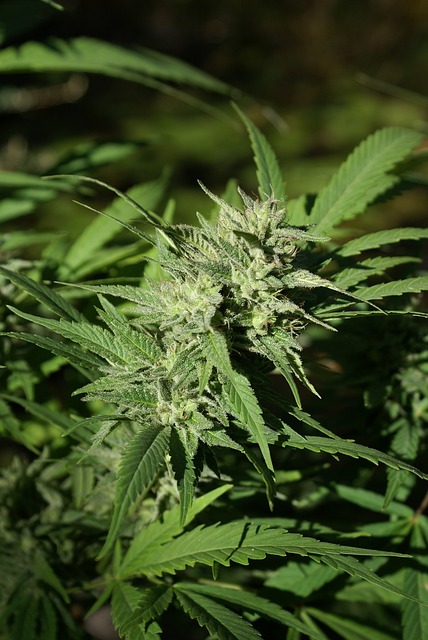
The THCA flower, a non-psychoactive compound found in raw cannabis, has been identified for its significant anti-inflammatory properties. Research indicates that THCA interacts with the endocannabinoid system to regulate inflammation and pain responses, comparable to certain NSAIDs, by inhibiting pro-inflammatory cytokines and enzymes like COX-2 and 5-LOX. Its efficacy in managing various inflammatory conditions is further supported by its ability to modulate immune responses and reduce the production of pro-inflammatory mediators, potentially offering a safe alternative to traditional anti-inflammatory medications without gastrointestinal risks. The THCA flower's anti-inflammatory effects make it a subject of increasing interest for therapeutic use, particularly in conditions such as arthritis and colitis, and its potential applications are expanding into neuroprotection. As research progresses, the importance of understanding THCA's mechanisms and benefits within the pharmaceutical and wellness sectors becomes clearer for treating inflammatory conditions naturally. Keywords: THCA flower anti-inflammatory effects.
Exploring the therapeutic properties of cannabis has led to a significant focus on THCA flower, a raw cannabis form that exhibits promising anti-inflammatory effects. This article delves into the multifaceted benefits of THCA flower, unveiling its potential mechanisms and applications in natural medicine. From understanding the science behind its anti-inflammatory role to examining research findings and clinical evidence, we will dissect how THCA flower stands out as a potential healing agent. Join us as we navigate the intricacies of this cannabinoid’s untapped therapeutic value.
- Unraveling the Anti-Inflammatory Potential of THCA Flower: A Deep Dive into Its Mechanisms and Applications
- The Science Behind THCA Flower's Anti-Inflammatory Role: Exploring Research Findings and Clinical Evidence
- Harnessing the Healing Power of Raw Cannabis: The Emergence of THCA Flower in Natural Anti-Inflammatory Therapies
Unraveling the Anti-Inflammatory Potential of THCA Flower: A Deep Dive into Its Mechanisms and Applications

THCA, or tetrahydrocannabinolic acid, is a non-psychoactive compound found abundantly in raw cannabis flowers that has garnered attention for its potential anti-inflammatory effects. These effects are attributed to THCA’s interaction with the body’s endocannabinoid system, which plays a crucial role in regulating inflammation and pain responses. Preclinical studies have indicated that THCA possesses anti-inflammatory properties that may be comparable to those of certain nonsteroidal anti-inflammatory drugs (NSAIDs). The anti-inflammatory effects of THCA are believed to stem from its ability to inhibit pro-inflammatory cytokines and enzymes like cyclooxygenase-2 (COX-2), which are known to contribute to the inflammation process. This inhibitory action could potentially offer therapeutic benefits for a range of conditions characterized by excessive inflammation, such as arthritis, colitis, and other inflammatory diseases.
Furthermore, the mechanisms underlying THCA’s anti-inflammatory potential involve its interaction with cannabinoid receptors like CB1 and CB2. These receptors are integral to the immune response and modulate various physiological functions. By activating these receptors, THCA may exert a regulatory effect on the immune system, reducing the production of pro-inflammatory mediators and potentially alleviating symptoms associated with inflammation. The therapeutic applications of THCA flower extend beyond just inflammation; its anti-inflammatory effects are also being explored in the context of neuroprotection, as it may have a role in protecting nerve cells from injury and disease through its anti-excitotoxic properties. This makes THCA flower an intriguing subject for further research and development within the pharmaceutical and wellness industries, offering promising avenues for treating various inflammatory conditions.
The Science Behind THCA Flower's Anti-Inflammatory Role: Exploring Research Findings and Clinical Evidence

betaneous cannabidiolic acid (THCA), a non-psychoactive compound found in the Cannabis sativa plant, has garnered significant attention for its potential therapeutic properties. Among these, the anti-inflammatory effects of THCA flower have been extensively studied in various experimental models and are supported by a growing body of clinical evidence. Research conducted on both human cells and animal subjects has demonstrated that THCA exhibits potent anti-inflammatory activities comparable to those of nonsteroidal anti-inflammatory drugs (NSAIDs). Studies have identified that THCA’s anti-inflammatory effects are mediated through several key pathways, including the inhibition of pro-inflammatory cytokines and enzymes like COX-2 and 5-LOX, which play pivotal roles in inflammation. These mechanisms suggest that THCA flower may offer a promising alternative for managing inflammatory conditions without the adverse gastrointestinal side effects often associated with traditional NSAIDs. Moreover, preclinical trials have shown that THCA can modulate immune responses and reduce the production of nitric oxide, a compound linked to various inflammatory diseases, further underscoring its anti-inflammatory potential. As research continues to evolve, the therapeutic applications of THCA flower in addressing inflammation are becoming increasingly clear, offering hope for individuals seeking natural, effective solutions for their inflammatory health challenges.
Harnessing the Healing Power of Raw Cannabis: The Emergence of THCA Flower in Natural Anti-Inflammatory Therapies

The therapeutic potential of cannabis has long been recognized, with recent research shedding light on the specific benefits of its non-psychoactive acid form, THCA or tetrahydrocannabinolic acid. The raw cannabis plant, particularly in the form of THCA flower, is gaining attention for its anti-inflammatory effects, a property that could revolutionize natural therapy approaches. Unlike its psychoactive counterpart THC, THCA does not induce a high but exhibits strong analgesic and anti-inflammatory properties. Preclinical studies indicate that THCA interacts with the body’s endocannabinoid system by binding to cannabinoid receptors, particularly CB2 receptors, which play a key role in regulating immune responses and inflammation. This interaction may offer therapeutic promise for those suffering from various inflammatory conditions, including arthritis and chronic pain, without the psychoactive side effects often associated with medical cannabis. The anti-inflammatory effects of THCA flower are not only promising but also reflect a growing interest in harnessing the healing power of raw cannabis within holistic health practices. As research continues to advance, the role of THCA flower as an effective natural remedy for inflammation and pain management becomes increasingly evident, offering new avenues for patients seeking alternative therapies.
THCA flower, with its robust anti-inflammatory properties, emerges as a promising natural remedy for those seeking alternatives to conventional treatments. The research into its mechanisms and applications has provided valuable insights into how it may offer relief from inflammation. As the scientific community continues to explore its potential, users are finding that raw cannabis, particularly in the form of THCA flower, holds significant healing power. This article has delved into the multifaceted benefits of THCA flower, highlighting its role as a natural anti-inflammatory agent and setting the stage for future investigations into its broader therapeutic applications. The exploration of THCA flower’s effects underscores the importance of natural compounds in healthcare, offering hope for those managing inflammatory conditions.





